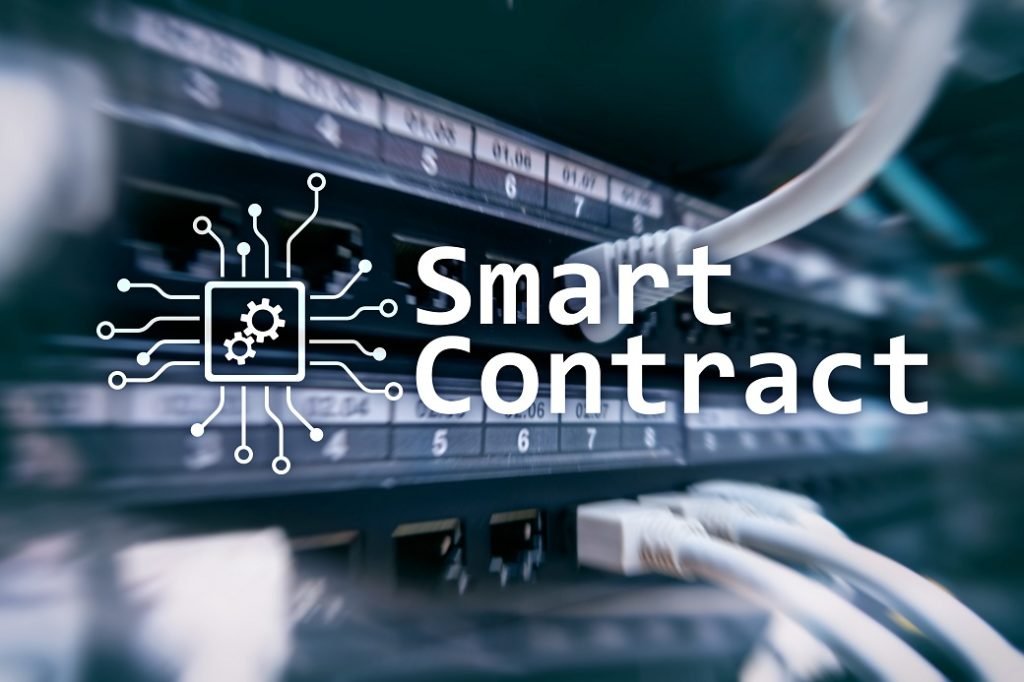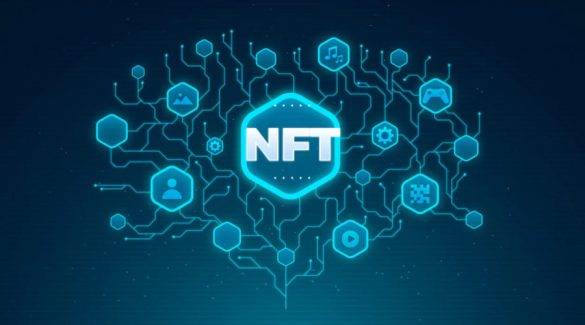Introduction
Blockchain technology and Non-Fungible Tokens (NFTs) have revolutionized various industries, and their impact on scientific endeavors is no exception. By leveraging the decentralized and transparent nature of blockchain, NFTs provide a secure and immutable platform for recording, verifying, and transferring scientific data, research findings, and intellectual property. This article explores how NFTs and blockchain technology are ensuring trust and transparency in scientific pursuits, promoting collaboration, and unlocking new possibilities for the advancement of knowledge.
Understanding Blockchain Technology and NFTs
Blockchain technology is a decentralized and distributed ledger system that records transactions and data across multiple computers. It ensures transparency, security, and immutability by maintaining a permanent and tamper-proof record of information. NFTs, built on blockchain technology, are unique digital assets that represent ownership or proof of authenticity for a specific item or piece of content.
Immutable Record-Keeping and Authenticity Verification
One of the key advantages of using NFTs and blockchain in scientific endeavors is the ability to maintain an immutable record of scientific data, research findings, and publications. By storing this information on the blockchain, researchers can ensure that it remains tamper-proof and cannot be altered or manipulated. Furthermore, NFTs provide a mechanism for verifying the authenticity and ownership of scientific work, allowing researchers to establish their credibility and protect against plagiarism.
- Blockchain technology ensures the immutability of scientific records.
- NFTs serve as proof of authenticity and ownership for scientific work.
Traceability and Intellectual Property Protection
NFTs enable the traceability of scientific data and intellectual property. Researchers can attach NFTs to their datasets, research outputs, or inventions, creating a transparent trail of ownership and usage. This traceability promotes proper attribution, protects intellectual property rights, and facilitates collaborations by providing clear records of contributions and usage rights.
- NFTs allow for traceability and provenance of scientific data and intellectual property.
- They enhance transparency and accountability in the attribution and usage of scientific work.
Promoting Collaboration and Open Science
Blockchain-based NFT platforms facilitate collaboration and open science initiatives. Researchers can securely share their work, datasets, or research outputs with others, fostering a culture of transparency and collaboration. NFTs enable the establishment of digital rights, licensing agreements, and revenue-sharing models, allowing researchers to control and monetize their work while still promoting open access to scientific knowledge.
- NFTs enable secure sharing of scientific work and foster collaboration among researchers.
- They support open science principles by promoting transparency and open access.
Decentralized Funding and Grants
Blockchain and NFTs have introduced new models for decentralized funding and grants in scientific research. Through tokenization, researchers can create NFTs representing their research projects or proposals. These NFTs can then be traded or sold, allowing researchers to raise funds directly from the community, bypassing traditional funding models. This decentralized approach democratizes access to funding and provides researchers with greater control over their projects.
- NFTs enable tokenization of research projects and decentralized fundraising.
- They offer researchers new avenues for raising funds and greater control over their research endeavors.
Overcoming Challenges and Considerations
While NFTs and blockchain technology offer significant benefits, there are challenges and considerations to address. These include scalability issues, energy consumption concerns, and the need for user-friendly interfaces. Additionally, ensuring data privacy and addressing regulatory compliance are vital for the ethical and responsible use of blockchain in scientific endeavors.
- Scalability, energy consumption, and user-friendly interfaces are challenges in adopting NFTs and blockchain in science.
- Data privacy and regulatory compliance are important considerations in the ethical use of blockchain technology.
Future Potential and Expansion
The potential applications of NFTs and blockchain in scientific endeavors are vast. As technology advances and adoption increases, we can expect to see further innovations in areas such as peer review, scientific collaborations, data sharing, and intellectual property management. NFTs may play a crucial role in shaping the future of scientific research, ensuring trust, transparency, and accountability in scientific endeavors.
- The future holds exciting possibilities for NFTs and blockchain in scientific peer review, collaborations, and data management.
- NFTs may revolutionize scientific research by enhancing trust, transparency, and accountability.
Smart Contracts and Automated Processes

- Streamlining Research Collaborations: Smart contracts, powered by blockchain technology, can automate and streamline research collaborations by executing predefined conditions and agreements. These contracts ensure transparency and facilitate the exchange of research data, intellectual property, and royalties.
- Automated Licensing and Royalty Distribution: With the use of NFTs and smart contracts, licensing agreements and royalty distribution can be automated, ensuring fair compensation for researchers and creators. Blockchain-based systems provide transparent records of usage and automate royalty payments in real-time.
Data Integrity and Reproducibility
- Immutable Data Storage: Blockchain technology enables the storage of scientific data in a tamper-proof and immutable manner. Researchers can store their data on the blockchain, ensuring its integrity and allowing for easy verification and reproducibility of research findings.
- Ensuring Data Provenance: NFTs can be used to track and verify the provenance of scientific data, establishing its origin and ownership. This traceability ensures the reliability and authenticity of the data, enhancing trust among researchers and the scientific community.
Intellectual Property Marketplace
- Creating Intellectual Property Marketplaces: Blockchain-based NFT platforms can serve as marketplaces for trading and licensing intellectual property. Researchers can tokenize their patents, inventions, or scientific discoveries as NFTs, allowing them to be bought, sold, and licensed in a secure and transparent manner.
- Incentivizing Innovation and Collaboration: Intellectual property marketplaces powered by NFTs provide incentives for innovation and collaboration. Researchers can monetize their intellectual property and incentivize others to contribute to its development through royalties and revenue-sharing mechanisms.
Tokenized Scientific Credentials
- Verifiable Scientific Credentials: Blockchain-based NFTs can be used to tokenize scientific credentials, such as degrees, certifications, and research achievements. These digital credentials can be securely stored on the blockchain, allowing for easy verification and authentication by employers, institutions, and peers.
- Enhancing Peer Review and Evaluation: NFTs can be utilized to enhance the peer review process by providing verifiable proof of peer-reviewed publications and contributions. Researchers can establish a transparent track record of their peer-reviewed work, strengthening their credibility and reputation within the scientific community.
Smart Contracts and Automated Processes
Smart contracts, powered by blockchain technology, have the potential to revolutionize research collaborations. These self-executing contracts are encoded with predefined conditions and agreements, ensuring transparency and efficiency in scientific endeavors. By utilizing smart contracts, researchers can automate various aspects of collaborations, such as data sharing, intellectual property licensing, and royalty distribution[^1^]. These automated processes eliminate the need for intermediaries, reduce administrative overhead, and provide a secure and transparent framework for researchers to collaborate and exchange valuable resources. Smart contracts enabled by blockchain technology streamline research collaborations, enabling researchers to focus more on the scientific aspects of their work and fostering a culture of trust and efficiency.
Data Integrity and Reproducibility
Maintaining data integrity and ensuring reproducibility are crucial in scientific research. Blockchain technology offers a solution by providing an immutable and tamper-proof ledger for storing scientific data[^2^]. Researchers can store their data on the blockchain, creating a permanent and transparent record of their findings. This not only enhances the integrity of scientific data but also enables easy verification and reproducibility by other researchers. The decentralized nature of blockchain ensures that data remains intact and unaltered, preventing unauthorized modifications or data tampering. By leveraging blockchain for data storage, researchers can enhance the trustworthiness and reliability of scientific research, fostering a more robust scientific ecosystem.
Intellectual Property Marketplace
Blockchain-based NFT platforms have the potential to create decentralized marketplaces for intellectual property (IP) in scientific endeavors. Researchers can tokenize their patents, inventions, or scientific discoveries as NFTs, providing a secure and transparent method for trading and licensing IP rights[^3^]. These marketplaces enable researchers to monetize their intellectual property directly, without the need for intermediaries, while also ensuring proper attribution and licensing compliance. The use of NFTs and blockchain technology introduces efficiency, transparency, and global accessibility to the process of buying, selling, and licensing IP. This empowers researchers to control and commercialize their inventions, facilitating innovation, collaboration, and the advancement of scientific knowledge.
Tokenized Scientific Credentials
Blockchain-based NFTs offer a novel approach to verifying and managing scientific credentials. Researchers can tokenize their degrees, certifications, research achievements, and peer-reviewed publications as NFTs, creating verifiable digital credentials[^4^]. These digital credentials can be securely stored on the blockchain, eliminating the need for manual verification and ensuring the authenticity of the credentials. By utilizing tokenized scientific credentials, researchers can streamline the evaluation process for employment, funding opportunities, and academic collaborations. Employers, institutions, and peers can easily verify the qualifications and contributions of researchers, fostering trust, and facilitating meaningful professional connections.
Conclusion
NFTs and blockchain technology are transforming the scientific landscape by ensuring trust, transparency, and traceability in research, data sharing, and intellectual property management. By leveraging the decentralized nature of blockchain and the unique properties of NFTs, researchers can collaborate more effectively, protect their intellectual property rights, and explore new avenues for funding and grants. As the technology continues to evolve, NFTs and blockchain hold tremendous potential to advance scientific endeavors and unlock new frontiers of knowledge.

